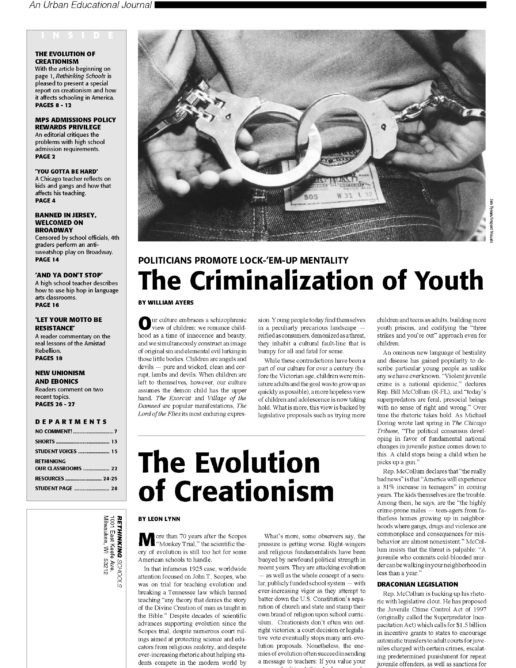Preview of Article:
Creationists Push Pseudo-Science Text
A lot of good scientists, however, don’t have any respect for “Of Pandas and People.” Michael Ruse, a professor of philosophy and zoology at the University of Guelph in Ontario, Canada, termed the book “worthless and dishonest” in a 1989 review. Kevin Padian, a paleontologist at the University of California-Berkeley and one of the authors of the science framework for California’s schools, called “Pandas” no less than “a wholesale distortion of modern biology.” He said: “It is hard to say what is worst in this book: the misconceptions of its sub-text, the intolerance for honest science, or the incompetence with which science is presented. In any case, teachers should be warned against using this book.”
Gerald R. Skoog, an education professor at Texas Tech University, a former biology, teacher and a past president of the National Science Teachers Association, has a similarly low opinion of “Pandas,” saying; “It’s just not science.” Even if you gloss over inaccuracies and misrepresentations of scientific theory in Pandas, he says, “the claim that life is the result of intelligent design can’t be tested by scientific means, and it has no power to explain the natural world.”
While “Pandas” claims to be a science book, it’s really a political tool, says Raymond Vasvari, a lawyer in Ohio who works with the American Civil Liberties Union and who has been involved in issues involving creationism. “I call ‘Of Pandas and People’ the intellectual Trojan horse of the religious right,” Vasvari says. “It looks and feels and acts like a science textbook, but it’s not. It’s a message aimed at the seventh-grader who doesn’t know science or understand the controversy over evolution and creationism.”

